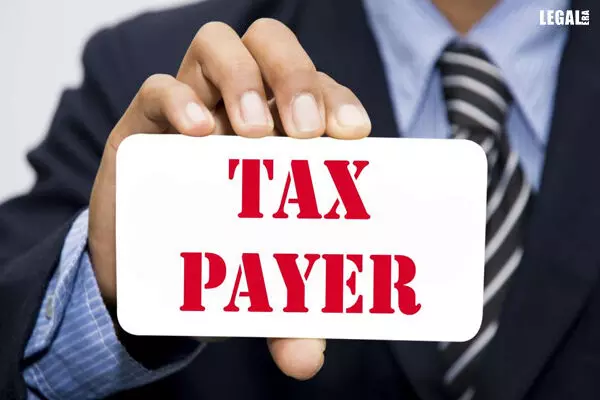- Home
- News
- Articles+
- Aerospace
- Artificial Intelligence
- Agriculture
- Alternate Dispute Resolution
- Arbitration & Mediation
- Banking and Finance
- Bankruptcy
- Book Review
- Bribery & Corruption
- Commercial Litigation
- Competition Law
- Conference Reports
- Consumer Products
- Contract
- Corporate Governance
- Corporate Law
- Covid-19
- Cryptocurrency
- Cybersecurity
- Data Protection
- Defence
- Digital Economy
- E-commerce
- Employment Law
- Energy and Natural Resources
- Entertainment and Sports Law
- Environmental Law
- Environmental, Social, and Governance
- Foreign Direct Investment
- Food and Beverage
- Gaming
- Health Care
- IBC Diaries
- In Focus
- Inclusion & Diversity
- Insurance Law
- Intellectual Property
- International Law
- IP & Tech Era
- Know the Law
- Labour Laws
- Law & Policy and Regulation
- Litigation
- Litigation Funding
- Manufacturing
- Mergers & Acquisitions
- NFTs
- Privacy
- Private Equity
- Project Finance
- Real Estate
- Risk and Compliance
- Student Corner
- Take On Board
- Tax
- Technology Media and Telecom
- Tributes
- Viewpoint
- Zoom In
- Law Firms
- In-House
- Rankings
- E-Magazine
- Legal Era TV
- Events
- Middle East
- Africa
- News
- Articles
- Aerospace
- Artificial Intelligence
- Agriculture
- Alternate Dispute Resolution
- Arbitration & Mediation
- Banking and Finance
- Bankruptcy
- Book Review
- Bribery & Corruption
- Commercial Litigation
- Competition Law
- Conference Reports
- Consumer Products
- Contract
- Corporate Governance
- Corporate Law
- Covid-19
- Cryptocurrency
- Cybersecurity
- Data Protection
- Defence
- Digital Economy
- E-commerce
- Employment Law
- Energy and Natural Resources
- Entertainment and Sports Law
- Environmental Law
- Environmental, Social, and Governance
- Foreign Direct Investment
- Food and Beverage
- Gaming
- Health Care
- IBC Diaries
- In Focus
- Inclusion & Diversity
- Insurance Law
- Intellectual Property
- International Law
- IP & Tech Era
- Know the Law
- Labour Laws
- Law & Policy and Regulation
- Litigation
- Litigation Funding
- Manufacturing
- Mergers & Acquisitions
- NFTs
- Privacy
- Private Equity
- Project Finance
- Real Estate
- Risk and Compliance
- Student Corner
- Take On Board
- Tax
- Technology Media and Telecom
- Tributes
- Viewpoint
- Zoom In
- Law Firms
- In-House
- Rankings
- E-Magazine
- Legal Era TV
- Events
- Middle East
- Africa
Supreme Court: Taxpayer Entitled To Hearing On Merit If High Court Dismisses Appeals For Delay In Filing Paper-Book

Supreme Court: Taxpayer Entitled To Hearing On Merit If High Court Dismisses Appeals For Delay In Filing Paper-Book
States that the Court would have condoned the delay for the AY 2001-2002 if the matter was taken up along with the AY 2002-2003
The Supreme Court, while setting aside the Rajasthan High Court orders, has restored the assessee's appeals by condoning the delay in filing the paper-book before the High Court. It observed that the assessee was entitled to his appeals being heard on a merit basis.
The division bench comprising Justice P.S. Narasimha and Justice Aravind Kumar held, “As appeal No.817 of 2008 stood dismissed for non-compliance, the High Court believed inconsistent orders cannot be passed and proceeded to dismiss even appeal No.816 without examining the matter on merits. We are of the opinion that the appellant is entitled to have his appeals heard on merits.”
For the Assessment Year 2001-2002, the assessment officer (AO) passed an order disallowing the interest, which was confirmed by the Commissioner of Income Tax (Appeals) and the Income Tax Appellate Tribunal (ITAT).
On an appeal, the High Court directed the assessee to file the paper book within 15 days, failing which, the appeal was to be dismissed without reference to the Court. Since the paper book was not filed within the prescribed time, the registrar dismissed the appeal. Thereafter, the Court dismissed the application for restoration of appeal and the review against the order.
The bench observed that the appeal was dismissed for non-filing of the paper book within the prescribed time. Since the inconsistent order could not be passed for the AY 2002-2003, it dismissed the appeal without examining the matter on merits.
The bench stated that the High Court would have condoned the delay for the AY 2001-2002 if had taken up the matter along with the AY 2002-2003.
Thus, the Apex Court allowed the appeal of the assessee and directed the High Court to take up the appeals for both assessment years together. However, the parties needed to be provided with an opportunity for proper adjudication and determination on a merit basis.



